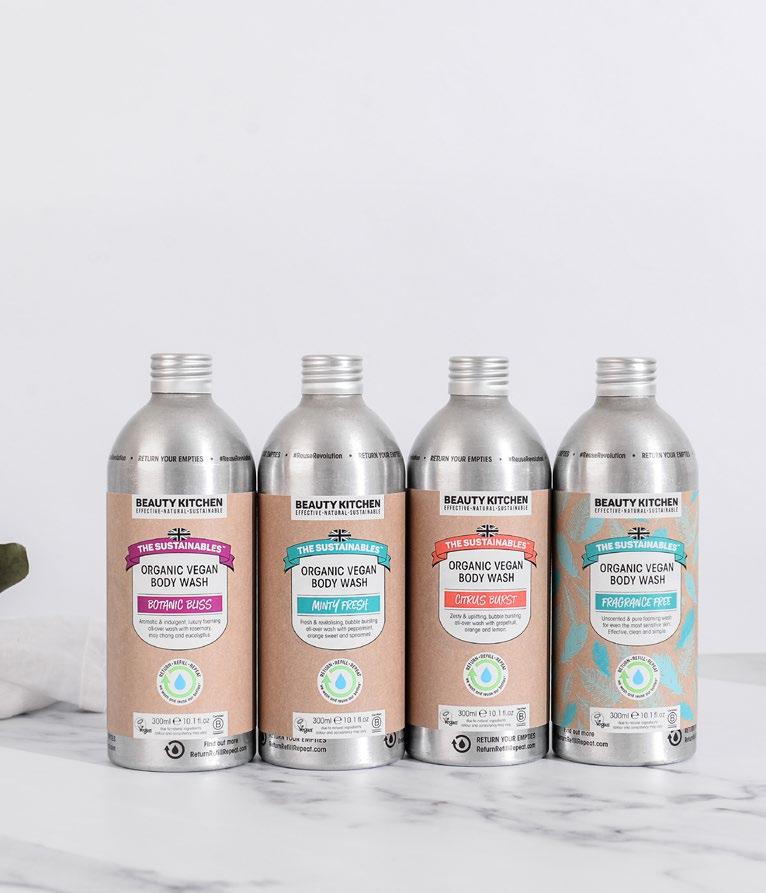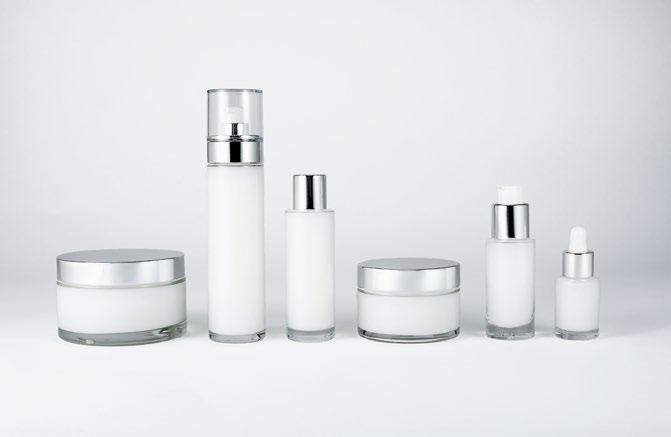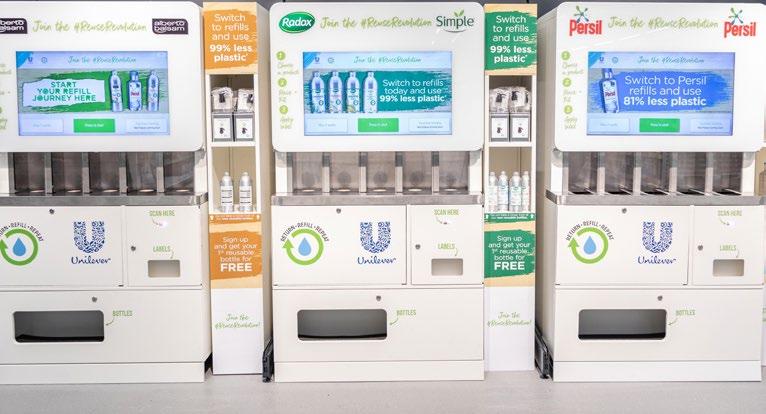
3 minute read
The revolutionary reuse model
By Amy Hasell, Social Media & PR Manager, Beauty Kitchen
t’s well known that we are facing a global plastic crisis, but it’s now time for the industry to take responsibility and use its voice collectively to make a change. Circular economy expert Jo-Anne Chidley, Co-founder of indie brand Beauty Kitchen and their Return•Refill•Repeat service, is stepping up to do just this.
Advertisement
To put the plastic crisis into context, 2 million tonnes of plastic per year was produced in the 1950s in comparison to 2020, where this figure has grown
a company
Simple or bold, stylish or exciting, standard or bespoke... ...we’ve the perfect bottle or jar for your product

We’ve been helping high-street and luxury brands bottle success for decades Discover how we can help
01473 823279 roma.co.uk
Bottle Brilliance

exponentially to a staggering 380 million tonnes of plastic produced a year (Statista, 2020). On top of this revelation, since the 1950s, just 9% of discarded plastic produced has been recycled (IEMA, 2017).
Traditionally, formulations and ingredients have driven the beauty industry whereas packaging has always been a secondary concern, driven by marketing rather than corporate social responsibility. In essence, consumers buy a product for what is inside, not the packaging. Jo questioned “why could we not incorporate sustainable packaging into the development process?”
The biggest challenge with refillable and reusable products is to consider a circular economy over the current traditional linear ‘take, make, waste’ supply chain approach. “We will not solve industrial revolution problems with industrial revolution thinking. To truly change something, we need to build a new model that considers Cradle to Cradle principles to overtake the current way of working. This is where our Return•Refill•Repeat service and Reuse model comes in.” said Jo Chidley. The idea behind the Reuse model is that taking refillable packaging and Refill Stations to the market will bring access to the circular economy to millions of households. A simple breakdown of the model is that customers can send back empty packaging to be washed, reused and put back into the supply chain, or reuse their bottle for life from the Refill Stations. It is difficult to change habits but education and evidence that refillable beauty can be a success will provide a positive example to the industry. From Beauty Kitchen’s own research, 92% of consumers state they would switch brands for refillable packaging given the option, and 63% of consumers would even switch retailers entirely (Beauty Kitchen, 2020). Despite profit not being the main motive behind Beauty Kitchen’s B Corp certified business, Circular has found that 74% of consumers would pay more for products in sustainable packaging (Circular, 2020). Showing there is a clear demand for refillable and reusable products, and evidence that it is still profitable and scalable, so it is a matter of time before this becomes the norm.
Collaboration and transparency are at the forefront of Jo’s mind when it comes to truly shifting the industry to a circular way of working. “Reusable packaging is really starting to become a priority which has enabled us to become the pioneers of sustainability and showcase to the rest of the industry what they should be doing. What we are doing now is sharing our knowledge to collaborate with other brands, retailers, and corporations to accelerate an inclusive, scalable and repeatable circular packaging solution.”
Most recently, Unilever became the second customer of Beauty Kitchen’s Return•Refill•Repeat service to install in-store Refill Stations as part of ASDA’s Sustainability Store in Leeds. Dispensing personal care products in reusable aluminium or stainlesssteel bottles, QR technology codes have been featured to enable full traceability of packaging to track the full circular journey. “The only way to make the circular economy really work is to work together to create the solutions as a team rather than focusing on competitive advantage, which is why we are so open to sharing our knowledge with others” said Jo Chidle.
What is the result of instilling a circular economy mindset? Beauty Kitchen’s answer, A #ReuseRevolution – claiming that if one household switched their regular body wash to a Beauty Kitchen body wash, they would save 36 single-use plastic bottles a year. If every household in the UK did this, 1 billion single-use plastic bottles could be saved in a year… Beauty Kitchen is truly on a mission to pave the way for a sustainable future.











